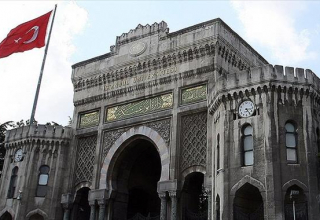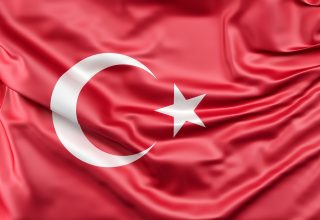The economy of Turkey is an emerging and a developing one.
According to the World Bank, Turkey, a newly industrialized country, is the 15th largest economy in the world. Turkey has weathered the recent global financial crisis better than other emerging economies. The country has a largely free-market economy is increasingly driven by its industry and service sectors. Its traditional agriculture sector still accounts for about 25% of employment.
Consumer electronics and home appliances, automotive, communications, agricultural, textiles and clothing, arms, construction, service sector are some of the main industries in Turkey.
As of 2010, the population of Turkey is estimated to be 73.7 million with a growth rate of 1.21% per annum (2009 figure). The population is relatively young with 26.6% falling in the 0-14 age bracket. Living in Turkey is still fairly cheap.
The currency in Turkey is the Turkish lira.
According to the CIA World Factbook see the Turkish economy in numbers below:
GDP (purchasing power parity):
$1.053 trillion (2011 est.)
Country comparison to the world: 17
$988 billion (2010 est.)
$906.9 billion (2009 est.)
Note: data are in 2011 US dollars
GDP (official exchange rate):
$763.1 billion (2011 est.)
GDP – real growth rate:
6.6% (2011 est.)
8.9% (2010 est.)Country comparison to the world: 29
-4.8% (2009 est.)
GDP – per capita (PPP):
$14,600 (2011 est.)
Country comparison to the world: 86
$13,800 (2010 est.)
$12,900 (2009 est.)
Note: data are in 2011 US dollars
GDP – composition by sector:
agriculture: 9.2%
industry: 26.9%
services: 63.9% (2011 est.)
Labor force:
26.46 million
Country comparison to the world: 23
Note: about 1.2 million Turks work abroad (2011 est.)
Labor force – by occupation:
agriculture: 25.5%
industry: 26.2%
services: 48.4% (2010)
Unemployment rate:
10.3% (2011 est.)
Country comparison to the world: 112
12% (2010 est.)
Note: underemployment amounted to 4% in 2008
Population below poverty line:
16.9% (2010)
Household income or consumption by percentage share:
lowest 10%: 2.1%
highest 10%: 30.3% (2008)
Distribution of family income – Gini index:
40.2 (2010)
Country comparison to the world: 62
43.6 (2003)
Investment (gross fixed):
21.8% of GDP (2011 est.)
Country comparison to the world: 95
Budget:
revenues: $176.8 billion
expenditures: $189.2 billion (2011 est.)
Taxes and other revenues:
23.2% of GDP (2011 est.)
Country comparison to the world: 130











